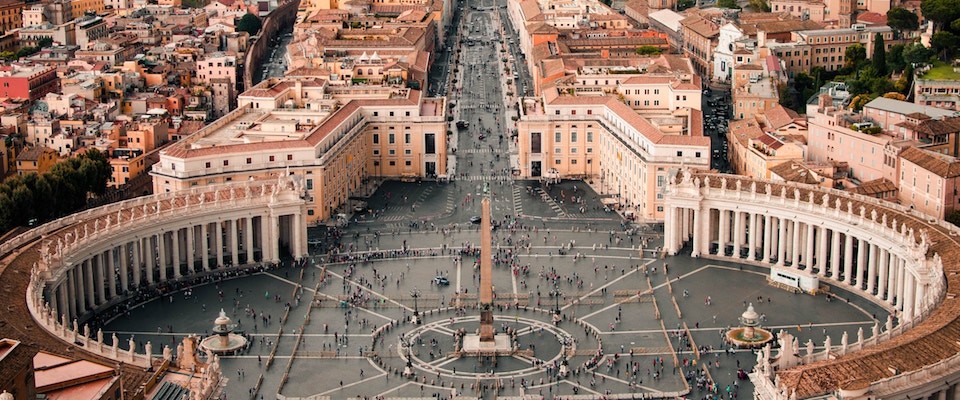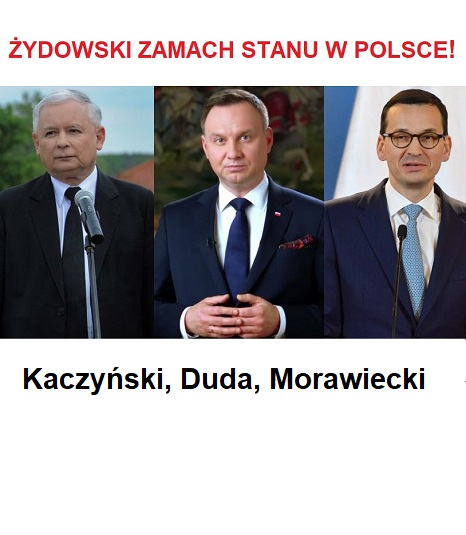Pope zrewidował Katechizm Kościoła Katolickiego, aby przeczytać: "kara śmierci jest niedopuszczalna, ponieważ jest ona atakiem na nienaruszalność i godność osoby". To stwierdzenie zostało zrozumiane przez wielu, zarówno w Kościele, jak i poza nim, uczyć, że kara śmierci jest wewnętrznie niemoralna, a zatem zawsze jest bezprawna, nawet w zasadzie.
Chociaż żaden katolik nie jest zobowiązany do popierania stosowania kary śmierci w praktyce (a nie wszyscy niżej podpisani popierają jej stosowanie), nauczanie, że kara śmierci jest zawsze i wewnętrznie złe, przeczyłoby Pismu Świętemu. To, że kara śmierci może być uzasadnionym sposobem na zapewnienie sprawiedliwości retrybutywnej, zostało potwierdzone w Księdze Rodzaju 9: 6 i wielu innych tekstach biblijnych, a Kościół utrzymuje, że Pismo nie może nauczać moralnego błędu. Prawomocność kary śmierci jest także konsekwentnym nauczaniem magisterium przez dwa tysiące lat. Zaprzeczanie Pismu Świętemu i tradycji w tej kwestii podważałoby wiarygodność Magisterium w ogóle.
Zaniepokojeni tą poważną, skandaliczną sytuacją, chcielibyśmy skorzystać z prawa potwierdzonego przez Kodeks kanoniczny Kościoła , który w kanonie 212 stanowi:
Wierni chrześcijańscy mogą ujawnić pasterzom Kościoła ich potrzeby, zwłaszcza duchowe i ich pragnienia. Zgodnie z posiadaną wiedzą, kompetencją i prestiżem mają oni prawo, a czasem nawet obowiązek ujawnienia świętym pasterzom ich opinii w sprawach dotyczących dobra Kościoła i przekazania ich opinii pozostałym wiernych chrześcijan, bez uszczerbku dla integralności wiary i obyczajów, z szacunkiem dla ich pasterzy oraz z troską o wspólną korzyść i godność osób.
Kierujemy się także nauczaniem św. Tomasza z Akwinu, który stwierdza:
Jeśli wiara była zagrożona, podmiot powinien nawet publicznie zganić swojego prałata. Stąd Paweł, który był poddanym Piotra, upominał go publicznie, ze względu na bliskie niebezpieczeństwo skandalu związanego z wiarą, a jak glos Augustyn mówi o Galacjanach 2:11, "Piotr dał przykład przełożonym, że jeśli w ogóle Czasami powinni się zdarzyć, że zbłądzą od prostej ścieżki, nie powinni lekceważyć, aby zostać ukarani przez swoich poddanych. "( Summa Theologiae, Część II-II, Pytanie 33, Artykuł 4, ad 2)
Dlatego my, niżej podpisani, wydajemy następujące odwołanie:
Do ich najsławniejszych Eminencji, Kardynałów Świętego Kościoła Rzymskiego,
Ponieważ jest to prawda zawarta w Słowie Bożym i nauczana przez zwyczajne i powszechne magisterium Kościoła katolickiego, przestępcy mogą być zgodnie z prawem skazywani na śmierć przez władzę cywilną, gdy jest to konieczne do zachowania porządku w społeczeństwie obywatelskim. skoro obecny biskup rzymski niejednokrotnie publicznie wyraził swoją odmowę nauczania tej doktryny, a raczej wprowadził wielkie zamieszanie w Kościele, zdając się go zaprzeczać, i wprowadzając do katechizmu Kościoła katolickiegoakapit, który spowoduje i już powoduje, że wielu ludzi, zarówno wierzących, jak i niewierzących, zakłada, że Kościół uważa, w przeciwieństwie do Słowa Bożego, że kara śmierci jest wewnętrznie zła, wzywamy Waszych Eminencje, aby doradzali Jego Świątobliwości, że jego obowiązkiem jest położyć kres temu skandalowi, wycofać ten akapit z Katechizmu i nauczać słowa Bożego bez fałszerstwa; i wyrażamy nasze przekonanie, że jest to obowiązek poważnie wiążący dla was, przed Bogiem i przed Kościołem.
Z poważaniem,
Hadley Arkes
Edward N. Ney Profesor w amerykańskich instytucjach Emeritus
Amherst College
Joseph Bessette
Alice Tweed Tuohy Profesor rządu i etyki
Claremont McKenna College
Patrick Brennan
John F. Scarpa Przewodniczący katolickiej analizy prawnej Uniwersytet
Villanova
J. Budziszewski
Profesor Rządu i Filozofii
University of Texas w Austin
Isobel Camp
Profesor Filozofii
Papieski Uniwersytet św. Tomasza z Akwinu
Richard Cipolla
Priest
diecezji Bridgeport
Eric Claeys
profesor prawa
Antonin Scalia Law School, George Mason University
Travis Cook
Associate Professor of Government
Belmont Abbey College
SA Cortright
profesor filozofii
Kolegium Najświętszej Maryi Panny
Cyrille Dounot
Profesor Historii Prawnej
Université Clermont Auvergne
Patrick Downey
profesor filozofii
Saint Mary's College
Eduardo Echeverria
profesor filozofii i teologii
Seminarium Duchowe Najśw. Serca
Edward Feser
Profesor nadzwyczajny Filozofii
Pasadena City College
Alan Fimister
Adiunkt Teologii
St. John Vianney Seminarium Teologiczne
Luca Gili
Adiunkt z Filozofii
Université du Québec à Montréal
Brian Harrison
Scholar w
Centrum Oblatów Studenckich Mądrości
L. Joseph Hebert
Profesor nauk politycznych
St. Ambrose University
Rafael Hüntelmann
Wykładowca w Filozofii
Międzynarodowy Seminarium Świętego Piotra
John Hunwicke
Priest
Ordynariat Personalny Matki Bożej z Walsingham
Robert C. Koons
Profesor filozofii
University of Texas w Austin
Peter Koritansky
Profesor nadzwyczajny Filozofii
University of Prince Edward Island
Peter Kwaśniewski
Independent Scholar
Wausau, Wisconsin
John Lamont
Autor
Boska wiara
Roberto de Mattei
Autor
The Second Vatican Council: An Unwritten Story
Robert T. Miller
Profesor prawa
Uniwersytetu w Iowa
Gerald Murray
Priest
Archidiecezja Nowego Jorku
Lukas Novak
Wykładowca w dziedzinie filozofii
University of South Bohemia
Thomas Osborne
profesor filozofii
University of St. Thomas
Michael Pakaluk
profesor etyki
Katolicki Uniwersytet Ameryki
Claudio Pierantoni
Profesor filozofii średniowiecznej
University of Chile
Thomas Pink
Profesor filozofii
King's College London
Andrew Pinsent
Dyrektor naukowy Ian Ramsey Center
University of Oxford
Alyssa Pitstick
Independent Scholar
Spokane, Waszyngton
Donald S. Prudlo
Profesor historii starożytnej i średniowiecznej
Jacksonville State University
Anselm Ramelow
Katedra Katedry Filozofii
Dominikana Szkoła Filozoficzno-Teologiczna
George W. Rutler
Priest
Archidiecezja Nowego Jorku
Matthew Schmitz
Starszy redaktor
Pierwsze rzeczy
Josef Seifert
założyciel Rektora
Międzynarodowej Akademii Filozofii
Joseph Shaw
Fellow z St Benet's Hall
University of Oxford
Anna Silvas
Adjunct Senior Research Fellow
University of New England
Michael Sirilla
Profesor teologii dogmatycznej i systematycznej
Franciszkański Uniwersytet w Steubenville
Joseph G. Trabbic
Profesor nadzwyczajny filozofii
Ave Maria University
Giovanni Turco
Profesor nadzwyczajny Filozofii
University of Udine
Michael Uhlmann
Profesor rządu
Claremont Graduate University
John Zuhlsdorf Diecezja
kapłańska
z Velletri-Segni
Zostań fanem First Things na Facebooku , zasubskrybuj pierwsze rzeczy za pośrednictwem RSS i śledź pierwsze rzeczy na Twitterze .
========
https://www.firstthings.com/web-exclusives/2018/08/an-appeal-to-the-cardinals-of-the-catholic-church
===========
-
AN APPEAL TO THE CARDINALS OF THE CATHOLIC CHURCH

Pope Francis has revised the Catechism of the Catholic Church to read, “the death penalty is inadmissible because it is an attack on the inviolability and dignity of the person.” This statement has been understood by many, both inside and outside the Church, to teach that capital punishment is intrinsically immoral and thus is always illicit, even in principle.
Though no Catholic is obliged to support the use of the death penalty in practice (and not all of the undersigned do support its use), to teach that capital punishment is always and intrinsically evil would contradict Scripture. That the death penalty can be a legitimate means of securing retributive justice is affirmed in Genesis 9:6 and many other biblical texts, and the Church holds that Scripture cannot teach moral error. The legitimacy in principle of capital punishment is also the consistent teaching of the magisterium for two millennia. To contradict Scripture and tradition on this point would cast doubt on the credibility of the magisterium in general.
Concerned by this gravely scandalous situation, we wish to exercise the right affirmed by the Church’s Code of Canon Law, which at Canon 212 states:
The Christian faithful are free to make known to the pastors of the Church their needs, especially spiritual ones, and their desires. According to the knowledge, competence, and prestige which they possess, they have the right and even at times the duty to manifest to the sacred pastors their opinion on matters which pertain to the good of the Church and to make their opinion known to the rest of the Christian faithful, without prejudice to the integrity of faith and morals, with reverence toward their pastors, and attentive to common advantage and the dignity of persons.
We are guided also by the teaching of St. Thomas Aquinas, who states:
If the faith were endangered, a subject ought to rebuke his prelate even publicly. Hence Paul, who was Peter’s subject, rebuked him in public, on account of the imminent danger of scandal concerning faith, and, as the gloss of Augustine says on Galatians 2:11, “Peter gave an example to superiors, that if at any time they should happen to stray from the straight path, they should not disdain to be reproved by their subjects.” (Summa Theologiae, Part II-II, Question 33, Article 4, ad 2)
Hence we, the undersigned, issue the following appeal:
To their Most Reverend Eminences, the Cardinals of the Holy Roman Church,
Since it is a truth contained in the Word of God, and taught by the ordinary and universal magisterium of the Catholic Church, that criminals may lawfully be put to death by the civil power when this is necessary to preserve just order in civil society, and since the present Roman pontiff has now more than once publicly manifested his refusal to teach this doctrine, and has rather brought great confusion upon the Church by seeming to contradict it, and by inserting into the Catechism of the Catholic Church a paragraph which will cause and is already causing many people, both believers and non-believers, to suppose that the Church considers, contrary to the Word of God, that capital punishment is intrinsically evil, we call upon Your Eminences to advise His Holiness that it is his duty to put an end to this scandal, to withdraw this paragraph from the Catechism, and to teach the word of God unadulterated; and we state our conviction that this is a duty seriously binding upon yourselves, before God and before the Church.
Sincerely,
Hadley Arkes
Edward N. Ney Professor in American Institutions Emeritus
Amherst College
Joseph Bessette
Alice Tweed Tuohy Professor of Government and Ethics
Claremont McKenna College
Patrick Brennan
John F. Scarpa Chair in Catholic Legal Studies
Villanova University
J. Budziszewski
Professor of Government and Philosophy
University of Texas at Austin
Isobel Camp
Professor of Philosophy
Pontifical University of St. Thomas Aquinas
Richard Cipolla
Priest
Diocese of Bridgeport
Eric Claeys
Professor of Law
Antonin Scalia Law School, George Mason University
Travis Cook
Associate Professor of Government
Belmont Abbey College
S. A. Cortright
Professor of Philosophy
Saint Mary’s College
Cyrille Dounot
Professor of Legal History
Université Clermont Auvergne
Patrick Downey
Professor of Philosophy
Saint Mary’s College
Eduardo Echeverria
Professor of Philosophy and Theology
Sacred Heart Major Seminary
Edward Feser
Associate Professor of Philosophy
Pasadena City College
Alan Fimister
Assistant Professor of Theology
St. John Vianney Theological Seminary
Luca Gili
Assistant Professor of Philosophy
Université du Québec à Montréal
Brian Harrison
Scholar in Residence
Oblates of Wisdom Study Center
L. Joseph Hebert
Professor of Political Science
St. Ambrose University
Rafael Hüntelmann
Lecturer in Philosophy
International Seminary of St. Peter
John Hunwicke
Priest
Personal Ordinariate of Our Lady of Walsingham
Robert C. Koons
Professor of Philosophy
University of Texas at Austin
Peter Koritansky
Associate Professor of Philosophy
University of Prince Edward Island
Peter Kwasniewski
Independent Scholar
Wausau, Wisconsin
John Lamont
Author
Divine Faith
Roberto de Mattei
Author
The Second Vatican Council: An Unwritten Story
Robert T. Miller
Professor of Law
University of Iowa
Gerald Murray
Priest
Archdiocese of New York
Lukas Novak
Lecturer in Philosophy
University of South Bohemia
Thomas Osborne
Professor of Philosophy
University of St. Thomas
Michael Pakaluk
Professor of Ethics
Catholic University of America
Claudio Pierantoni
Professor of Medieval Philosophy
University of Chile
Thomas Pink
Professor of Philosophy
King’s College London
Andrew Pinsent
Research Director of the Ian Ramsey Centre
University of Oxford
Alyssa Pitstick
Independent Scholar
Spokane, Washington
Donald S. Prudlo
Professor of Ancient and Medieval History
Jacksonville State University
Anselm Ramelow
Chair of the Department of Philosophy
Dominican School of Philosophy and Theology
George W. Rutler
Priest
Archdiocese of New York
Matthew Schmitz
Senior Editor
First Things
Josef Seifert
Founding Rector
International Academy of Philosophy
Joseph Shaw
Fellow of St Benet’s Hall
University of Oxford
Anna Silvas
Adjunct Senior Research Fellow
University of New England
Michael Sirilla
Professor of Dogmatic and Systematic Theology
Franciscan University of Steubenville
Joseph G. Trabbic
Associate Professor of Philosophy
Ave Maria University
Giovanni Turco
Associate Professor of Philosophy
University of Udine
Michael Uhlmann
Professor of Government
Claremont Graduate University
John Zuhlsdorf
Priest
Diocese of Velletri-Segni
Become a fan of First Things on Facebook, subscribe to First Things via RSS, and follow First Things on Twitter.







